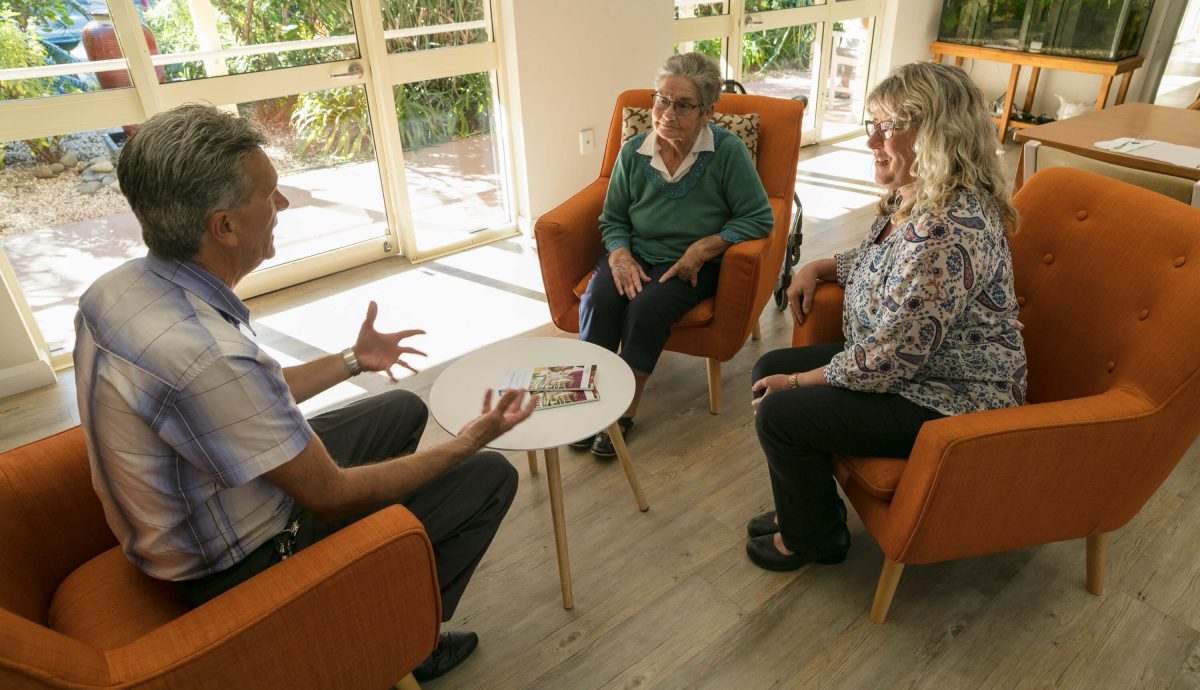
Research Reveals Barriers to Accessing Aged Care Services
Australia’s aged care industry has undergone a significant amount of change, both in the type of and level of service provision and the legislation governing aged care, over the past few years.
The complexity of these changes, coupled with new ways of accessing aged care services, has led to the consumer journey into care services becoming increasingly challenging and often complex. Access to funded aged care services via an Aged Care Assessment Team, for example, is now only available through MyAgedCare, with consumers required to engage via either a website or a contact centre to get the process to access care started.
To better understand how consumers and their families were faring given the high level of change that has occurred, the University of Sydney and The Whiddon Group embarked on a large scale qualitative research project called ENCODE.
While it was expected that the level and volume of change would have had some effect on older people, the research partners – Professor Yun-Hee Jeon from The University of Sydney, and Karn Nelson from Whiddon – were “surprised by the level of confusion, frustration and feelings of helplessness that people expressed around accessing aged care services,” said Whiddon’s Director of Research, Karn Nelson.
“Our aged care stakeholders, who included a range of aged care providers, were equally frustrated by the level of change, and concerned for older people and whether they will be able to access the type of services that they need,” Nelson said.
Issues Within Aged Care Services Uncovered In The Research
The research has uncovered that perceptions around aged care and experience of trying to access all types of aged care services were fraught with challenges for vulnerable and confused consumers and their families, including:
- The inability to find good, easy and transparent information about the range of services on offer and how to access them.
- Unaffordability of aged care services
- A lack of services – particularly around transport in regional, rural and remote areas, psychological support, and dementia support in the community and at home
- Lack of information in the places, and through the information channels, that make sense to consumers such as Centrelink, GPs and other health services
- A lack of technology skills or familiarity with the systems making the MyAgedCare process to access an Aged Care Assessment almost impossible for many
- A number of challenges with MyAgedCare, including a poor system, having to piece together information on your own, long wait times, and a lack of communication between health services and aged care services.
“It was heartbreaking to listen to some of the experiences that our seniors and their families had to endure in the course of navigating and accessing the complex maze of aged care services. There were, however, moments of joy when some of the consumers shared their stories about care providers and staff becoming part of their life, like a family. Conversations with them clearly suggested the significant value consumers and families put in the quality of the relationship with care providers,” Professor Jeon, who led the project, recalled.
During data analysis, it became evident that consumers wanted tailored services to their preferences and needs, but choices given were often either meaningless or confusing. Choice without sufficient information and guidance is no longer a choice, Professor Yun-Hee Jeon said.
While some older people accessing or considering accessing, aged care services have the support of family or friends, the above challenges and barriers can be disastrous for those living on their own and without family or friends to assist with the process. These barriers and the complexity of the process coupled with fearful perceptions around the quality of aged care services often means that there is a lack of planning on the consumer’s part.
While aged care stakeholders perceive this as a lack of forward planning resulting in consumers accessing aged care services in a crisis, the message from the research is clear – while consumers feel uninformed, disempowered, fearful of what lies ahead and unable to anticipate what they might need, this cycle will continue.
Through the research, consumers and families voiced that one-on-one help and advice is needed, and that they are overwhelmed and largely alone in navigating the decision, approval and paperwork maze that is aged care. This information is sadly not new and there are both international examples, like Ireland’s Information Parlours to provide a one-stop shop around information on services for older people, and examples of Australian aged care providers advocating for and supporting consumers and families through ‘aged care helplines’ as part of their pre-admission process.
While work around improving the MyAgedCare process continues, there is a need for solutions in the short term. Older people and their families are requiring assistance to help them navigate the aged care system and consumer advocacy that can provide access to one on one support is critical.

About the research
ENCODE is one of the largest scale qualitative research projects that explores the needs, wants and perceptions of aged care services in Australia and is a partnership between The University of Sydney and The Whiddon Group.
The research was conducted in October 2016 among older people living in the community either accessing or considering accessing aged care services, their family members and aged care stakeholders including providers, community health services, social workers and discharge planners.
Participants were randomly recruited in 8 different locations across NSW, including metropolitan, regional, rural and remote locations. A second wave of qualitative research will be conducted in 2018.




